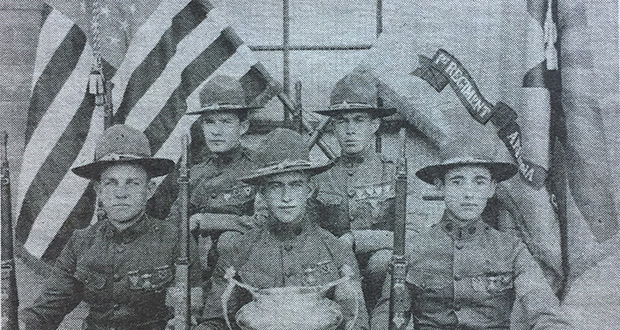John C. Frémont
Arizona Capitol Reports Staff//January 11, 2008//[read_meter]
People have always come to Arizona for a new beginning or to reinvent themselves. John C. Frémont, ‘The Great Pathfinder,’ was no exception.
Frémont was born in Savannah, Ga. on Jan. 21, 1813. He grew up in Charleston, S.C., and went to Charleston College. A girl distracted him from his studies and he was expelled three months before graduation for “habitual irregularity and incorrigible negligence.” He was able to get reinstated and graduated with a degree in mathematics.
Frémont was employed with the Corps of Topographical Engineers and was sent west with Joseph Nicolet to map and explore the area between the Mississippi River and the Upper Missouri River. He learned mapmaking and exploration skills from Nicolet on this adventure in 1838.
In 1840, when Frémont was 27, he fell in love with Jessie Benton. Jessie was the 14-year-old daughter of U.S. Sen. Thomas Hart Benton from Missouri. Not surprisingly, the senator did not approve of the romance. Frémont persevered, and he married Jessie in 1841.
Sen. Benton was the first five-term senator and a proponent of Manifest Destiny. Manifest Destiny was the belief that “the American government was destined to establish uninterrupted political authority across the entire North American continent, from one ocean to the other.”
Perhaps to get Frémont away from his daughter, Sen. Benton had him put in charge of three Western expeditions to find routes to Oregon and California. Frémont teamed up with explorer and scout Kit Carson and had many adventures in
the West.
Frémont’s reports of the West captured the imagination of the country. Ironically, many experts felt that Frémont’s wife Jessie did much of the writing on Frémont’s reports. Frémont’s maps were almost-required trail maps for the thousands of pioneers as they traveled to homesteads in the West.
Frémont’s reports to the government brought him fame, but very little money. Frémont served a short time as the military governor of California, U.S. senator for California, and was the first nominee of the Republican Party for president in 1856. Frémont lost that election to James Buchanan.
By 1878, at the age of 65, Frémont was appointed territorial governor of Arizona by President Rutherford B. Hayes. Frémont probably needed the salary of $2,600 per year ($47,500 when adjusted for inflation). As he and his family came west to Arizona, Frémont was honored with receptions and banquets at Chicago, Omaha and San Francisco. One reporter described Frémont as “the governor is no speaker, but he has a striking presence and a ruddy complexion.”
The family arrived in Yuma and took wagons to Prescott which was the state capitol. In that era, Prescott was described as a boom town and “…paradise itself, which Prescott in summer time very much resembles…” It was also noted that “freighting to and from the mines is a lively business…the streets often presenting a choked appearance by…20-mule freight teams and others of smaller caliber, not to mention…burro train…”
Probably not appreciating the lifestyle of Arizona, Jessie Frémont went back to New York City shortly after arriving in Prescott. Governor Frémont proposed to the Legislature that they spend $500,000 ($9.1
million adjusted for inflation) to construct good roads to help the development of industry in Arizona.
Frémont also proposed the diversion of Gulf of California water to flood the Imperial Valley and make it into a large inland lake. He believed this would “…restore the climate, temperature, and atmospheric conditions…and…increasing…the rainfall would bring fertility and comfort to all the surrounding region.”
Frémont’s ideas for Arizona climate change did not amuse Arizona residents. The Arizona Citizen commented that Frémont was “as ignorant as the Amer of Afghanistan of Arizona affairs.”
The Legislature had more important items to consider than Frémont’s ambitious plans. Seventeen couples were divorced by action of the Legislature. There were reports that these actions came as a big surprise to some of the spouses of the person seeking the divorce.
The Legislature also granted name changes to eight people. The Legislature repealed the bullion tax and Governor Frémont signed the legislation. One California newspaper criticized this legislation as being “unfair for nonresidents of Arizona to exploit the mines…without contributing a dollar in taxes to the support of schools or government.”
Frémont spent months out of the state visiting his wife and family during the three years he was governor. During Frémont’s many absences, secretary of the Arizona Territory and frequent acting Governor John Gosper complained he was acting governor three quarters of the time. Another critic indicated “…
Frémont has been a detriment rather than a help to Arizona.”
Frémont resigned as governor in October of 1881. He moved back to New York City. He died of peritonitis following a burst appendix in 1890. His obituary in the New York Times summed up his life by stating “…in spite of his record in opening up the West and in the Civil War, and notwithstanding his political prominence, Gen. Frémont was far from being well known among the present residents of this city.”
— Mike Miller. Photo courtesy of Arizona State Library, Archives and Public Records, Archives Division, Phoenix, #96-1376.


















